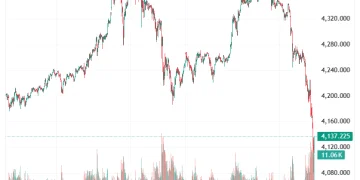Gov’t Implementing Reforms to Strengthen Ghana’s Investment Appeal, Says Dr. Wisdom Dogbey
Ghana is implementing a series of fiscal and economic reforms designed to enhance its investment appeal and position the country as a competitive destination for foreign capital.
The measures, outlined by Dr. Wisdom Dogbey, Economic Advisor at the Ministry of Finance, include fiscal consolidation, infrastructure investment, tax rationalization, and monetary stability initiatives.
Speaking during the NorvanReports and Economic Governance Platform (EGP) X Space discussion on the topic “Ghana’s Investment Pitch: Are We Ready to Compete in the Global Market for Fresh Investments?”, Dr. Dogbey emphasized that the government is prioritizing fiscal discipline to instill investor confidence.
Fiscal Discipline and Public Financial Management
A key pillar of the reform agenda is the rationalization of public expenditure to eliminate inefficiencies. “The emphasis on fiscal discipline is crucial for building investor confidence, as it ensures public resources are deployed effectively, creating a stable economic environment,” Dr. Dogbey said.
The government has also outlined plans to streamline public procurement processes, including the establishment of an Independent Value for Money Office to enhance oversight and ensure budgetary alignment in contract awards.
Infrastructure Investment as a Growth Catalyst
The administration’s Big Push Policy aims to accelerate infrastructure development, with targeted investments in roads, energy, and transport expected to lower logistical costs and improve market access.
Dr. Dogbey pointed to international precedents such as China’s Belt and Road Initiative and South Korea’s infrastructure expansion as models for leveraging strategic infrastructure to drive economic growth.
“Improving infrastructure is a key attractor for investors, as it enhances supply chain efficiency and market connectivity,” he noted.
Monetary Stability and Foreign Exchange Reserves
Efforts to stabilise the cedi and curb inflation remain a cornerstone of the investment strategy. The recently approved Ghana Gold Board is expected to boost foreign exchange inflows and gold reserve accumulation, contributing to broader economic stability.
“A stable macroeconomic environment reduces currency volatility risks, preserving investor purchasing power and long-term confidence in the market,” Dr. Dogbey said.
Tax Rationalisation and Business Incentives
The government is also pursuing tax reforms to reduce the financial burden on businesses and consumers. The removal of certain levies, including the 10% withholding tax on large revenues and the e-levy, is expected to improve liquidity within the economy.
“The finance minister is committed to rationalizing the VAT regime to enhance compliance while easing pressure on businesses,” Dr. Dogbey said.
24-Hour Economy Initiative
A proposed 24-hour economy initiative is also under consideration, aiming to boost productivity and employment through round-the-clock business operations. The policy, modeled on global economic hubs, is expected to create a more dynamic and competitive business environment.
“By enabling businesses to operate continuously, Ghana will be more competitive, which is particularly attractive to investors seeking dynamic markets,” he explained.
Outlook
With these fiscal and structural reforms, Ghana is positioning itself as an investment-friendly economy with a transparent and predictable regulatory framework.
The measures are expected to not only stabilize macroeconomic fundamentals but also provide the necessary infrastructure and policy support for long-term business growth.
“Investors can expect a more predictable and transparent environment that supports long-term investment decisions,” Dr. Dogbey concluded.








